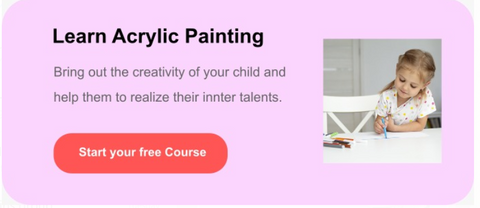Developing Self Esteem Through Art

Positive accomplishment, such as drawing, craft, painting, or clay modeling can release the neurotransmitter dopamine into your system, which not only stimulates the creation of new neurons that can help keep the brain active, but can also combat depression and increase self-esteem. Today’s article focuses more profoundly on how fine art education can teach young students about self-esteem and how it directly boosts their self-image for the better.

Self-esteem develops in early childhood when children start to experience and define their capabilities. Developing a healthy self-esteem from an early stage is significantly important as it directly leads to a higher level of self-confidence in all aspects of life. Educators believe that art education improves both cognitive and socio-emotional capabilities. Activities such as working with clay, drawing, painting, digital art help develop a child’s self-esteem. For children who take more time for their project, there is a sense of accomplishment that follows. When students are working towards a common goal, they appreciate that their “voice” and interests are heard and understood by others. This joint effort creates a sense of secure acceptance that is critical to their self-esteem. Self-expression allows us to understand ourselves and process our emotions. According to research conducted at the Georgetown Behavioral Health Institute, self-expression in the arts positively affects mood, function, cognition, and behavior. Our team of trained instructors always encourage children while guiding them through the different styles and helping them with new mediums. Kids in art classes learn how to show up when they are tasked with creating & connecting from the heart. The process & experience of creating is fun, creative, and fosters new learning opportunities for children. Art in early education not only allows for students to express themselves creatively but confirms that learning interactively is effective. It is rewarding for students to see a project they made from scratch completed. Facilitators in Dex Art guide them with the plan to establish their finished output from a basic sketch. While an arts education aids academic achievement, as research often cites, another way to look at art in early education is through the ancillary behavioral benefits it affords. With an art education, children learn to reflect and question. In addition, they learn about community responsibility and self-expression.

Art classes offer the student a sense of achievement, a chance to see not only the value of other’s work but also the valuable time they put in their creative process. This self-reflection is a crucial component to further developing their self-esteem as it generates a sense of both pride and uniqueness within the child.
Join our classes to learn about the skills & techniques and help your child boost his/her self esteem.
